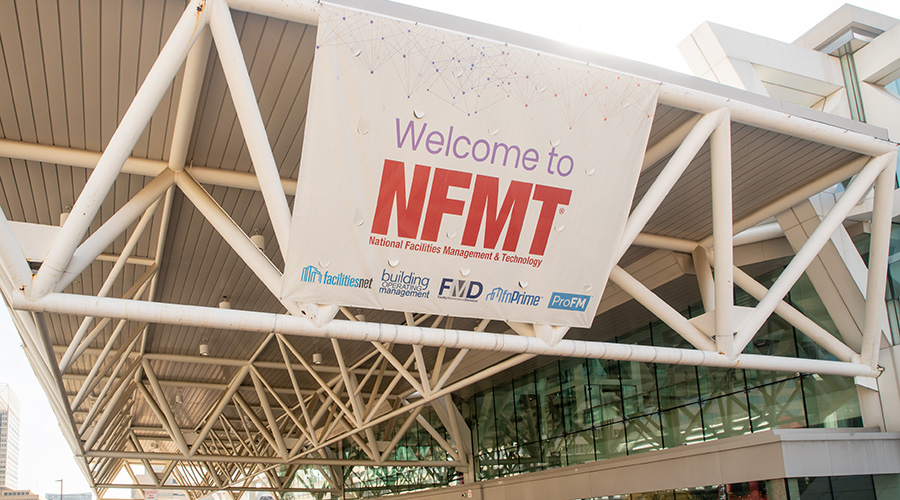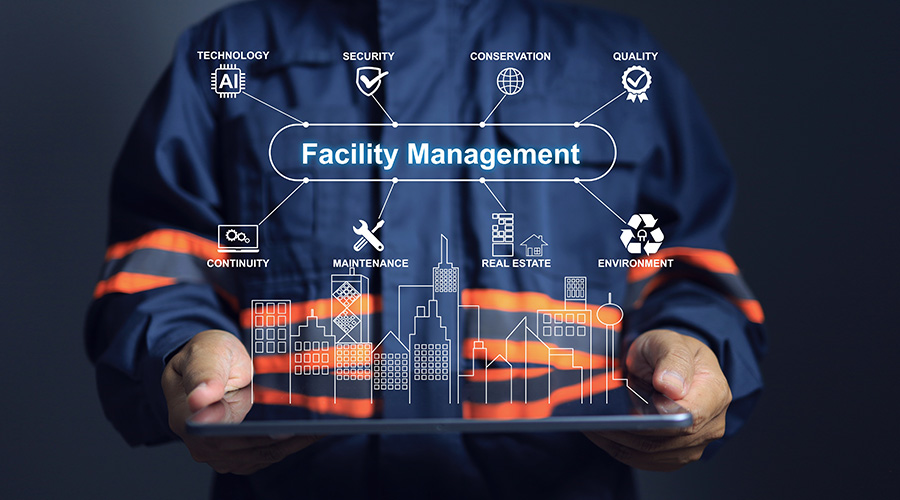Why Facility Managers Are Not Adopting Social Media
The reasons why social media has not been more readily embraced as a business tool by the facilities management community are varied. Many are still just feeling it out. After all, Facebook was only established in 2004 and started out just for college kids. Plus, the facility management industry overall is shy on embracing new technologies right off the bat.
In addition, upper management might not be keen on their staff "goofing off" on social media platforms during work hours. And some facility departments are wary of the exposure brought by social media platforms. After a presentation on social media, Edward Bury, director of marketing and communications, BOMA Chicago, recalls some audience members voicing concerns over the exposure. "But if people are going to talk negatively about you, they're going to talk whether you're part of the conversation or not," Bury says. "It's better to be a part of the conversation so you can respond authoritatively and quickly."
Like it or not, social media platforms have entered the business world as important components of an effective communications strategy. While it's true excellent facilities management can be delivered without the use of social media, experts agree that it behooves all facility managers to at least dip their toes in the water and start familiarizing themselves with the different available platforms and their capabilities. "It's not a must-do for everybody, but at a minimum you need to be educating yourself on the channels and what their potential is for the future so you can be continually investigating whether it makes sense for you or your company," says Courtney Harper, vice president at Reputation Partners, a corporate communications consulting firm.
One of the first things to decide when evaluating which social media channel to focus on is to figure out what kind of message you need to communicate and to whom, says Karen Altes, senior manager, online communities at Institute of Real Estate Management. She has also written an e-book on social media for real estate managers. "It's all about where your audience is. On Facebook, everybody is there, but are they there to interact with a company like yours?"
Harper agrees it's important to assess where the target audience is. "A lot of companies make the mistake of thinking that they have to be on every single channel every single day," she says. "The fact of the matter is that every channel is not for every company."
Social Media's Individual Benefits
Social media channels are ever increasing and each has its own particular angle, but for simplicity this article will focus primarily on the big three mentioned already. If you have a Facebook account but don't do much with it except for look at family photos, or if you're on LinkedIn, but only to post your resume, here are some ideas for making social media work both for your personal professional development and for your facilities management strategy.
Social media can be used both to consume and to broadcast information. In a tight-budget, multiple-hat, no-time-to-breathe world, social media can be a facility manager's best friend. "Facility managers are looking for quick access to innovation and information to more effectively manage all areas of their business," says John Garrett, president/CEO of Facilities Management Advisors. "They don't necessarily have time to wait for the journals, take the courses, wait for the books." Through social media, FMs can have access to best practices, information and trends relative to their area of expertise or need, says Garrett.
Most magazines (including this one) and trade organizations post links to articles, upcoming educational seminars, industry white papers and research, tradeshows and other newsworthy items. When you "like" pertinent journals or organizations from your Facebook profile or follow them on Twitter, you are signing up to receive their notifications, which are compiled in a list — your "feed" or "wall" — on your account. You are essentially building an easy-to-scan list of valuable industry information that is perpetually refreshed. Whenever it's convenient, you can then go to your account and click on the items that pique your interest without having to visit each organization's website individually to see what's there. In addition, you can set up your account so that notifications will also be sent to your email.
But where social media really shines is in networking. Many facility managers work in isolation or in small departments and it can be hard to find the time and venues to do face-to-face networking. But with social media, you can network on your own time. For example, on LinkedIn facility managers can set up a network of individuals they know personally and get introduced to their connections' connections. This network can be used to share your own best practices or useful bits of information found on the Web. It can also be used to troubleshoot questions with peers. In addition to individual accounts, LinkedIn hosts organization group pages. If these are open groups, anyone can post a comment or question on the group page.
One easy way to dip a toe into social media is through Twitter. If a large industry event is happening, such as a tradeshow like the National Facilities Management & Technology Conference (NFMT), facility managers can follow that event or its hashtag (the # symbol, used to indicate keywords or topics) to see what people are saying about it and see how the industry uses the channel, says Harper. By following the commentators that are useful or interesting, facility managers can start building their network on that channel. It's also a free and easy way to get a flavor for a conference you might want to attend in the future.
Related Topics:















